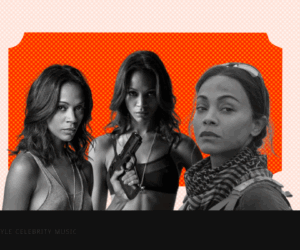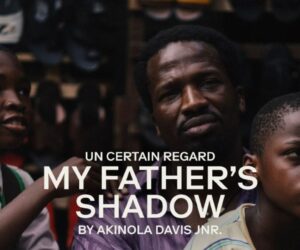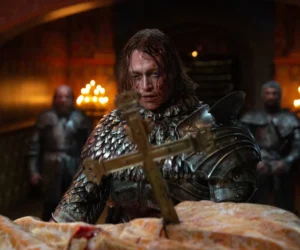
This year’s AFRIFF panel featuring Dr Sid, M.I. Abaga, Charles Okpaleke, and Paul Okeugo was one of those rare sessions where every sentence felt like a tweet thread waiting to happen.
Four creatives, each straddling both the art and the business of entertainment, unpack what it means to chase excellence in an industry bursting with talent but short on structure.
It wasn’t your usual “how to make it in Nollywood” pep talk. This was honest, blunt, funny, and uncomfortable in parts about the pressure to stay relevant in a global market, the money drought plaguing creatives, and why Nigerians might just be the most resilient artists in the world.
READ THIS: 10 Ways to Survive Drama on Set Without Losing Your Mind or Film
‘We Have an Excellence Problem’ – Dr Sid
Dr Sid didn’t come to flatter anyone. The former Mavin star turned filmmaker opened with a reality check that had the room nodding and wincing.
“We get very complacent,” he said. “Our competitors are no longer Nigerians. We’re playing in a global space. The standards we should hold ourselves to are international.”
According to him, many Nigerian creators have mastered “packaging” enough. We celebrate ourselves so loudly that when our work gets to a global platform, the cracks show.
It’s not shade, it’s truth. The audience murmured in agreement when he pointed out that even our hits sometimes don’t meet the technical expectations of global distributors.
Sid’s point? Excellence isn’t a one-time achievement; it’s a habit. He talked about his own process, developing a story for three years, still not at a first draft, yet constantly sharing it for feedback.
“By the time I go to the first draft, I want to be sure it will have the impact I intend. We need to ask: What could I have done better?”
In a space obsessed with virality and quantity, it was refreshing and a little intimidating to hear someone say that patience is part of professionalism.
ALSO READ: Other Ways Nollywood Can Depict Romance Without Kissing
M.I Abaga: “We’re Building an Industry Out of Magic”
When M.I. joined the panel, he quickly reframed the conversation. For him, the creative industry isn’t just about entertainment; it’s a nation-building project.
“The mission is simple,” he said. “Creatives are here to stay loud. We’re going to produce the jobs and the economic value that will lift Africa.”
He drew parallels between Nollywood and Afrobeats, noting how both industries grew from sheer audacity. “We’re ahead of the curve,” he said, pointing out how Nigerian filmmakers from Jade Osiberu to Kunle Afolayan are already doing what Hollywood calls “first-look studio deals.”
But his biggest frustration was funding.
“People in the film industry are making magic on shoot-through budgets,” he said. “In the West, a million-dollar film is considered low budget. Here, that’s a big deal.”
For him, the problem isn’t talent or creativity, it’s the system. Banks won’t give loans. Venture capital doesn’t understand creative risk.
And the government, well… is watching from the sidelines. Yet, despite all this, Nigerians continue to create, export, and dominate global culture.
“We’ve built this from nothing,” he said, almost defiant. “Now the question is, do we believe we can be the dominant force globally? Because if we do, then we need to act like it.”
ALSO READ: Finishing a Nollywood Film Is Easy. Making Money Off It Is the Real Story
Paul Okeugo: “Money Is a Byproduct of Excellence”
When Paul Okeugo, co-founder of Chocolate City Group, took the mic, he gently pushed back on the “we need funding” chorus.
“There’s almost no gain in saying we need funding,” he said. “Even Hollywood needs funding. What we need is structure.”
He compared Nigeria’s creative ecosystem to a child born as an old man, a Benjamin Button kind of industry. Instead of growing bottom-up (training, structure, professionalisation), Nollywood started from the top, making films before building systems to sustain them.
“We want Hollywood money on a Nigerian budget,” he quipped. “But money is really a byproduct of excellence.”
Paul didn’t just talk; he’s doing. His company recently took over a government-owned film school, with plans to rebuild it from the ground up.
He also announced the launch of a sound post-production facility in Lagos, focused on solving Nollywood’s long-time Achilles heel, sound quality.
“I hang out with filmmakers in the U.S. and they say the same thing: ‘Africa has great stories, but your sound is nonsense.’ That’s not a money problem. It’s an expertise problem.”
ALSO READ: 5 Nigerian Films That Got the Internet Talking Last Month
Dr Sid On Funding, Infrastructure, and Culture
When the conversation circled back to funding, Dr Sid connected the dots between infrastructure, audience habits, and profitability.
“When malls first came to Nigeria, we didn’t think they’d work. Now they’re packed. That’s infrastructure changing culture.”
He believes the same can happen with cinema culture, that if we build spaces where people want to watch local films, the revenue cycle will strengthen. But without those spaces, even the most brilliant films will struggle.
“We need funding to create infrastructure. Infrastructure affects culture. Culture leads back to money.”
It was one of those simple statements that sum up an entire industry’s pain point: you can’t build consistency on vibes.
ALSO READ: ‘Music is meant to enhance the story not take away from it’ – Kaline Music
Charles Okpaleke: ‘The Government Needs to Fund Young Blood’
Charles Okpaleke, the man behind Living in Bondage: Breaking Free and Nneka the Pretty Serpent, brought it home with a clear message: government support isn’t a luxury; it’s a necessity.
“We have the stories, we have the talent. What we don’t have is support. Young filmmakers with hot blood need funding.”








